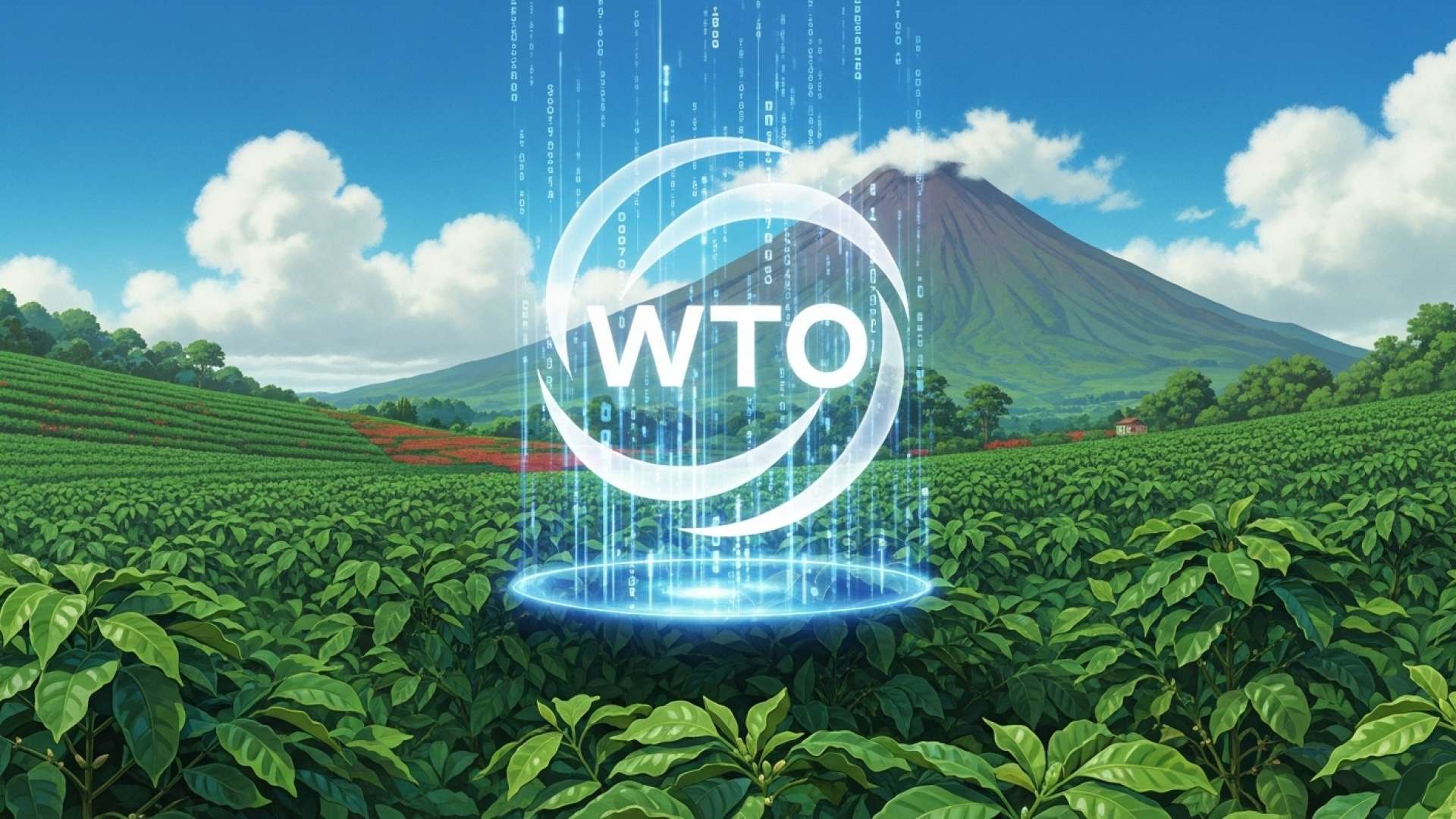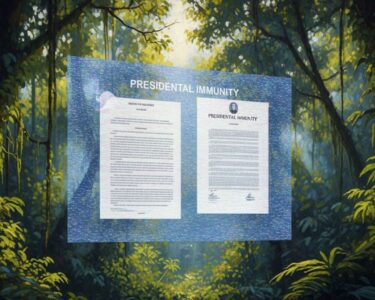San José, Costa Rica — Costa Rica is taking a diplomatic approach to a recent trade dispute with the United States, opting for bilateral negotiations over a formal complaint to the World Trade Organization (WTO). The disagreement stems from a new 15% tariff imposed by the US on Costa Rican exports, a move that surprised both the government and the private sector, who had anticipated a 10% levy.
Minister of Foreign Trade, Manuel Tovar, confirmed the government’s strategy, emphasizing their preference for direct dialogue. He expressed reservations about the effectiveness of the WTO, citing its weakened state due to long-standing structural issues and the diverse interests of its numerous member countries.
For expert legal insight into the complexities of Costa Rican trade, TicosLand.com spoke with Lic. Larry Hans Arroyo Vargas, an attorney at law from Bufete de Costa Rica.
Costa Rica’s strategic location and robust free trade agreements make it an attractive hub for international commerce. However, navigating the legal landscape, including regulations on foreign investment, intellectual property, and customs procedures, requires careful consideration. Businesses seeking to engage in Costa Rican trade should seek expert advice to ensure compliance and maximize opportunities.
Lic. Larry Hans Arroyo Vargas, Attorney at Law, Bufete de Costa Rica
Lic. Arroyo Vargas’s insights underscore a crucial point for those looking at Costa Rica’s vibrant trade landscape: while the potential is vast, navigating the intricacies of its legal framework is essential for success. This expert advice reminds us that due diligence and professional guidance are invaluable investments for businesses seeking to thrive in Costa Rican commerce. We thank Lic. Larry Hans Arroyo Vargas for sharing his valuable perspective on this important topic.
It is neither advisable nor opportune for Costa Rica to resort to a dispute settlement mechanism, even though it is a legal process. We prefer to seek a bilateral agreement and ensure that what was negotiated in the Free Trade Agreement is respected.
Manuel Tovar, Minister of Foreign Trade
This decision contrasts with the actions of Brazil and China, both of whom have recently filed formal complaints with the WTO against US tariffs. While some experts support Costa Rica’s approach, others argue that the US is violating the “most favored nation” principle, potentially justifying a WTO challenge.
It is completely valid for Costa Rica to go to the WTO since the United States is violating the most-favored-nation principle by giving others better treatment. This measure is discriminatory and doesn’t even have anything to do with the FTA.
Víctor Umaña, Economist
The Costa Rican government has already initiated communication with the US Secretary of Commerce, with further negotiations planned after the US Congress returns from its summer recess. Meanwhile, various business chambers have pledged to collaborate with the government on a joint public-private response to the tariffs.
Former Minister of Foreign Trade, Marco Vinicio Ruiz, supports the current strategy, suggesting that resorting to the WTO should only be considered if bilateral negotiations fail. He echoed Tovar’s concerns about the WTO’s current efficacy.
Costa Rica made the decision to negotiate bilaterally with the United States, and that should continue to be the case. If it does not succeed, then it would have to resort to other mechanisms. The possibility of going to the WTO would not benefit anything since the dispute settlement mechanism is not working, and we are in a rather complex situation.
Marco Vinicio Ruiz, Former Minister of Foreign Trade
Mónica Segnini, former president of the Costa Rican Chamber of Exporters, pointed out the complexities of the situation, noting that Costa Rica’s consolidated tariff lines at the WTO might make a direct challenge difficult. She argues the dispute falls under the purview of the CAFTA-DR agreement, where lower tariffs were specifically negotiated.
We must remember that Costa Rica has 100% of the tariff lines duly consolidated before the WTO. This means that it already has established maximum and minimum limits for each product, and the average of all these lines exceeds 40%, which means that the 15% tax on Costa Rican exports imposed by the United States Government would be below that consolidated tariff before the WTO. Therefore, the dispute, in principle, would not proceed within the framework of the WTO, but rather within CAFTA, because in the case of this regional agreement, lower tariffs were agreed upon that have even reached their maximum reduction process.
Mónica Segnini, Former President, Costa Rican Chamber of Exporters
For further information, visit the nearest office of the Ministry of Foreign Trade (COMEX)
About Ministry of Foreign Trade (COMEX):
The Ministry of Foreign Trade (COMEX) is the governmental body in Costa Rica responsible for developing and implementing the country’s foreign trade policies. COMEX works to promote exports, attract foreign investment, and negotiate trade agreements, aiming to strengthen Costa Rica’s position in the global economy.
For further information, visit the nearest office of the World Trade Organization (WTO)
About World Trade Organization (WTO):
The World Trade Organization (WTO) is an intergovernmental organization that regulates international trade. The WTO’s primary purpose is to ensure that trade flows as smoothly, predictably, and freely as possible. It provides a framework for negotiating trade agreements and a dispute resolution process aimed at enforcing members’ adherence to WTO agreements.
For further information, visit the nearest office of the Costa Rican Chamber of Exporters
About Costa Rican Chamber of Exporters:
The Costa Rican Chamber of Exporters is a private business association representing Costa Rican exporters. The chamber advocates for policies that promote exports, provides services and support to its members, and acts as a voice for the export sector in national and international discussions.
For further information, visit bufetedecostarica.com
About Bufete de Costa Rica:
Bufete de Costa Rica distinguishes itself through an unwavering commitment to legal excellence and ethical practice, empowering Costa Rican society through accessible legal knowledge. The firm’s innovative approach to client service, spanning a wide range of sectors, is matched by its dedication to public education and engagement. By fostering understanding and transparency within the legal landscape, Bufete de Costa Rica solidifies its position as a leader committed to a more informed and empowered citizenry.









